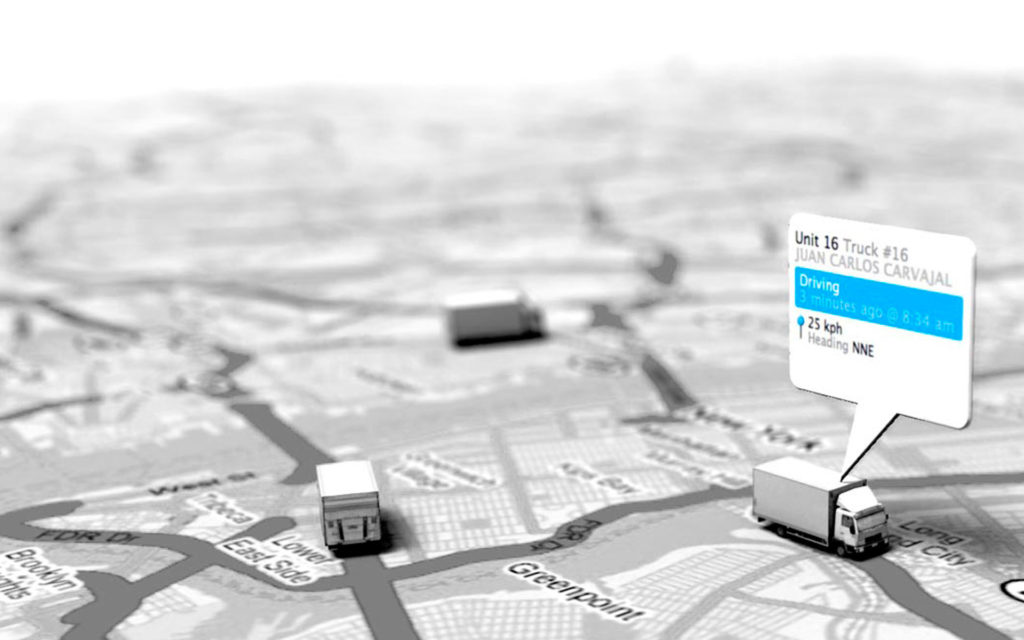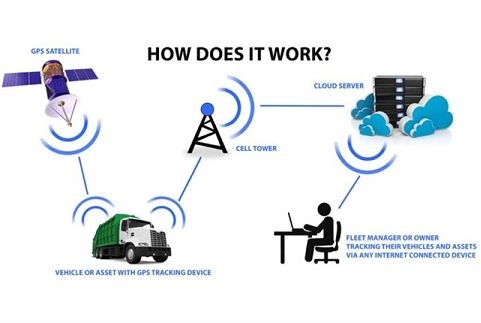
The Internet of Things (IoT) is a system of interrelated computing devices, mechanical and digital machines, objects, animals, or people that are provided with unique identifiers and the ability to transfer data over a network without requiring human-to-human or human-to-computer interaction.
One of the biggest problems the logistics industry faces is tracking the fleet. IoT essentially makes Vehicle Tracking solutions a lot more efficient, economical, and automated. There can be n number of use cases for IoT and one of the very pertinent cases is in the fleet management system. The ioT-based devices can capture a lot of parameters such as driver behavior, idling, and stopping time. Present-day vehicle tracking systems can be used for fuel monitoring, load monitoring, temperature monitoring and RFID/biometric integration, and so on.

Internet of things in the vehicle tracking system (VTS) currently works on 3 main technologies:
Radio-frequency identification or RFID: RFID helps control and track products.
Global Positioning System or GPS: GPS tracking solutions obtain real-time information on routes.
Onboard diagnostics or OBD II: OBD II obtains information on vehicle maintenance and driving conditions.

How an IoT Based Fleet Tracking System works
- Location data was collected on vehicle sensors, including GPS, and OBD II sensors.
- DATA from all sensors is periodically sent to a local gateway over a mobile data connection as the vehicle moves.
- The gateway sends information to the network server, where speed, location, direction, and other variables are collected and sent to a secure application server in the cloud.
- The application server sends reports and alerts on the movement and safety of the vehicle to drivers’ or supervisors’ mobile.
IoT Revolutionizing Fleet tracking
IoT plays an important role in fleet management by connecting applications to deliver the data and services that make fleet operations safer, greener, and more cost-effective. The Internet of things created a tremendous impact on fleet management with machine-to-machine (M2M) solutions to make the smart city come alive. With IoT for fleet management, we can not only keep track of vehicles but also monitor high-value assets in remote locations.
The power of IoT is being harnessed in every possible way to make the world more connected. This inter-connectivity enables us to control every connected object despite being miles away. Just think how smart home apps enable you to control the thermostat from your mobile device. It continues to expand into new areas like healthcare, retail, agriculture, security, disaster management, etc. The supply chain is made up of various stakeholders including manufacturers, transport companies, and retailers. Information sharing and connectivity are essential for all of them. Therefore, IoT has an important role to play in this industry.
Benefits of IoT in Fleet tracking
- IoT automates the various process in fleet management, IoT enables to set up of an automatic flow of logistics processes as an interconnected device and work as a part of an integrated process.
- Real-time tracking gives accurate idling vehicle time hence saving billions of gallons of fuel
- Scheduling, fleet management, and effective routing are some of the advantages of the internet of things.
- IoT helps in tracking the performance of vehicle components by comparing it with the present performance of the component to the standard performance. It sends a notification if it finds any irregularities or drops in performance.
- Gathering, sharing, and taking action on real-time info on overall performance helps in making rapid decisions and prompt improvement.
- It automates the process, i.e. As devices are interconnected and work as part of an integrated process, companies can set up an automatic flow of daily logistics processes and trip planning.
- Better analytics, i.e. Internet of Things has the ability to derive collectivity data from various sensors. This enables fleet management companies to get useful insights into driver behavior, adherence to laws, vehicle speeding and idling, etc.
Also, read – Importance of data analytics in fleet management
End Conclusion
IoT is not something that is going to happen in the future it is happening right now. It has become the norm. It has already started affecting a lot of aspects of our lives. Predictions are that there could be 28 billion connected objects by the year 2021. Businesses have tremendous opportunities to benefit from such a hyper-connected world and IoT, undoubtedly, has set to become the backbone of the fleet management industry.
If you enjoyed reading this, we’re sure you will also love checking out what we have in store on our Youtube channel. You can also head to our home page for more info!
Subscribe to stay ahead with the latest updates and entrepreneurial insights!

Subscribe to our newsletter
Get access to the latest industry & product insights.




























